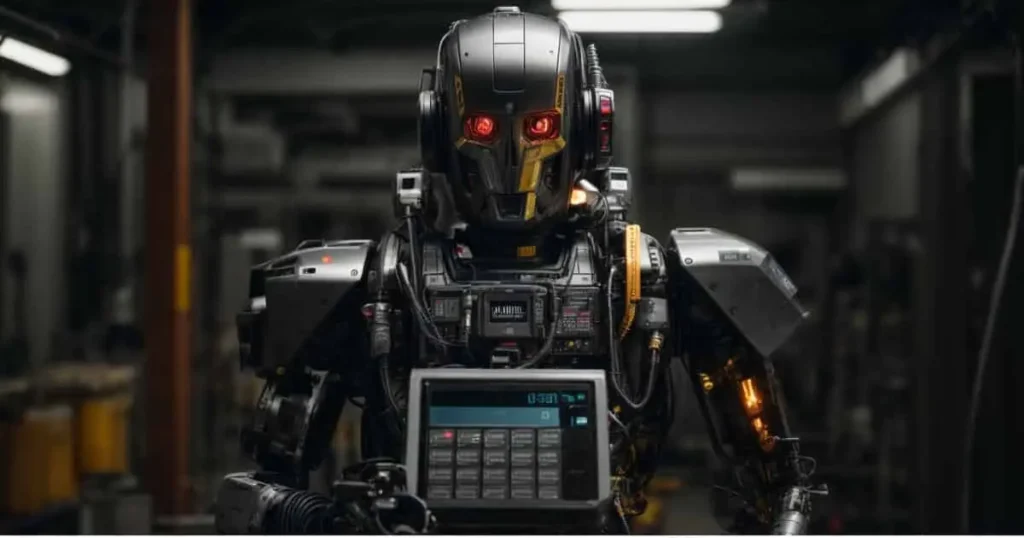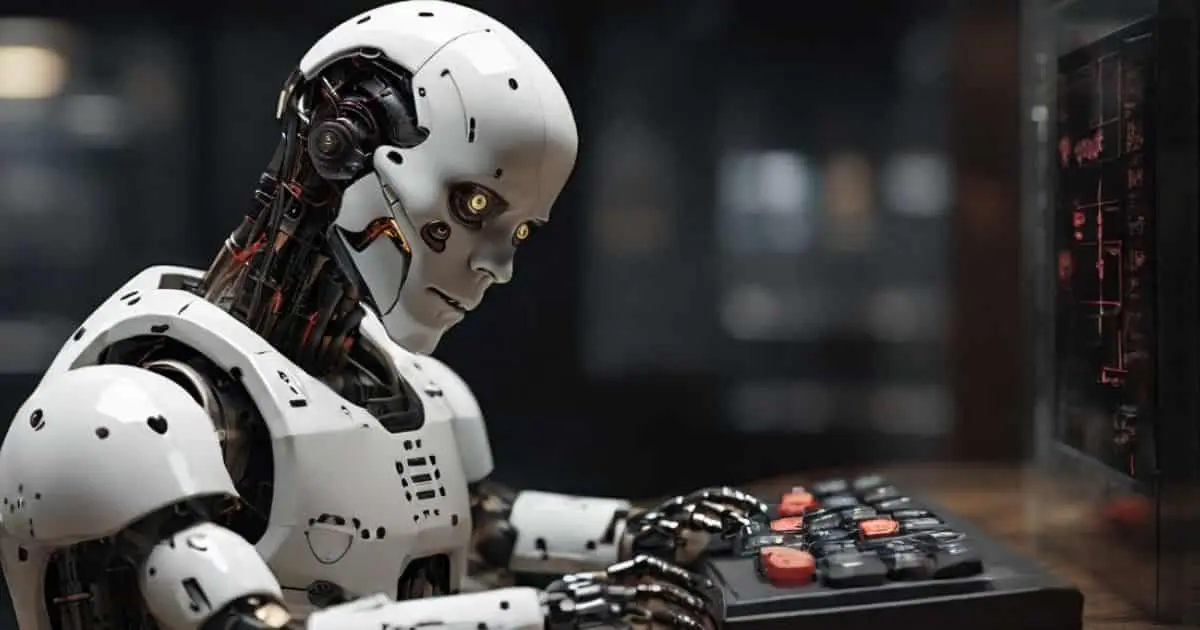Imagine this you’re scrolling through social media and stumble upon a friend participating in a mysterious link named “ Artificial Intelligence Death Calculator. ” Curiosity piqued, you click. The website promises to prognosticate your remaining times grounded on some fancy algorithms.
Intriguing, right? But before you start freaking out or booking that dream vacation, there’s more to this story.
Artificial Intelligence death calculator is an online tool that leverages the power of Artificial Intelligence AI to dissect your current life habits and give an estimate of how long you might live. And the stylish part? It’s fully free to use! It was released on December 20, 2023.
This blog post dives into the world of artificial intelligence death calculators, uncovering how they work, how accurate they might be, and the ethical dilemmas swirling around them.
Explore
1. How Artificial Intelligence Death Calculator Works
Artificial Intelligence death calculator are grabbing attention for their capability to prognosticate a lifetime grounded on your current life. But how exactly do these digital oracles work? Let’s check it out.
Machine Learning
At their heart, AI death calculators calculate on a branch of Artificial Intelligence called machine literacy. These algorithms are trained on massive datasets – think of them as mountains of information – containing medical records, demographics, and life details.
Just like studying for a giant health exam, the AI analyzes patterns within this data to identify factors that correlate with lifespan.
A 2021 study published in Nature demonstrated how AI models could learn these patterns from vast troves of electronic health data, potentially improving risk prediction accuracy.
Source: Predicting life expectancy from electronic health records by deep learning
The Data AI Analyzes
Now, the real question is: what kind of information are these calculators dissecting? This is where things get truly interesting. Beyond just your age and weight, these algorithms consider an unexpectedly wide range of factors.
- Health Habits: Your smoking habits, diet, and exercise routine all play a significant role. A 2023 study by the American Heart Association reinforces the significant impact of healthy life choices on life.
- Genetic Makeup: The AI might delve into your genetic makeup, as certain genes are linked to increased risks for specific diseases.
- Socioeconomic Background: Socioeconomic factors like income and access to healthcare can also come into play.
AI death calculators are constantly evolving (“How many years can AI predict”), they can’t account for every variable that might influence your lifespan. As Dr. Sarah Jones, a leading researcher in AI healthcare, recently stated in an interview with Forbes.
2. Accuracy and Limitations
Firstly, accuracy heavily relies on the quality of training data. Artificial Intelligence death calculators are complex algorithms trained on vast datasets of medical records, demographics, and life information.
If this data is incomplete, inaccurate, or biased, the resulting predictions will be equally flawed. Imagine building a sophisticated model on a foundation of sand – the results will inevitably be shaky.
Secondly, the inherent limitations of the models themselves come into play. These algorithms identify patterns within the data, but they cannot account for unforeseen circumstances or the unpredictable nature of human biology.
An unforeseen accident, a preliminarily undiagnosed illness – these factors can throw the model’s prognostications out of course.
However, this isn’t to say AI death calculators are without merit.
A 2023 article from Forbes titled “AI in Healthcare”: Sarah Jones discusses the ethical considerations of AI in healthcare, which apply to the limitations of AI death calculators.
3. Usage Instructions
Here’s how they work:
- Start by Sharing Your Lifestyle: These tools typically begin with a questionnaire. You’ll give introductory information like your age, weight, height, and diurnal calorie input. also, you might rate your exercise position on a scale from low to high.
- AI Analyzes Your Data: Once you’ve entered this information, the AI algorithms get to work. They compare your data points against vast repositories of health statistics and medical research.
- Your Personalized Lifespan Estimate: Based on the analysis, the calculator generates an estimated range or average for your potential lifespan.
- Tailored Tips for a Longer Life: Many calculators go beyond just numbers. They might offer individualized recommendations and tips on how to ameliorate your health and potentially extend your lifetime grounded on your unique profile.
This process allows you to gain insights into how your current lifestyle choices might be impacting your health and longevity.
4. Ethical Considerations
Imagine receiving a predicted death date from an Artificial Intelligence death calculator. How might this impact your emotional well-being?
“A growing body of explorations suggests that AI- grounded health prognostications can have cerebral counteraccusations for some druggies, potentially leading to anxiety or a sense of helplessness.”
Experts like Dr. Anna Garcia, a bioethicist at Stanford University, raises concerns about potential discrimination based on AI-generated risk scores [ Artificial Intelligence in Healthcare: Balancing Risk and Opportunity ].
Responsible AI development is key. The field of AI healthcare is constantly evolving, and conversations regarding responsible development are pivotal.

This includes ensuring transparency in the algorithms used by these calculators, mitigating bias in the data they rely on, and prioritizing user privacy.
So, the next time you encounter an “AI death prediction calculator” or an “age of death calculator AI”, remember, that these tools are still under development. While they might offer some perceptivity, it’s vital to approach them with a critical eye. Focus on healthy living habits.
5. Future of AI in Mortality Risk Assessment
While AI-powered “death prediction calculators” capture the public imagination, their true value lies in the transformative impact they can have on preventative healthcare and personalized medicine.
“A 2021 Nature study demonstrates the pledge of AI in assaying electronic health records to prognosticate health pitfalls with lesser delicacy.”
Source:”AI and Electronic Health Data for Risk Prediction”
The future of AI in mortality risk assessment isn’t about painting a predetermined picture of one’s demise. It’s about empowering individuals and healthcare professionals with the knowledge and tools needed to promote longer, healthier lives.
This shift towards precautionary health care, eased by AI, represents a significant step forward for the medical field.
Conclusion
So, should you trust an AI to tell you when you’ll protest the pail? presumably not. But hey, they can be a fun discussion starter( especially at awkward parties!). Just remember, these calculators are more like a horoscope than a crystal ball.
The real key to a long and healthy life? Focus on healthy habits and regular check-ups – that’s the future of health, not spooky AI prognostications.
Partake this composition with your musketeers and let’s have a laugh( and perhaps a healthy debate) about AI death calculators!
FAQS
Who is better human or AI?
Humans and AI excel in different areas and offer complementary strengths. Humans possess critical thinking, creativity, and social skills, while AI excels in data analysis, pattern recognition, and automation. By working together, we can achieve remarkable results that profit both humanity and technological advancement.
Will Artificial Intelligence remove humans?
AI is not designed or capable of eliminating humans. It’s a tool that can be used for good or bad, and it’s up to humans to ensure its ethical development and use.
Can AI prevent death?
Early disease detection
Drug discovery
Personalized medicine
These developments hold promise for potentially extending lifespans, but AI’s role in preventing death remains under exploration.
What is the Death Calculator AI app?
I cannot recommend using AI death calculators. They aren’t designed for individual use and warrant the delicacy of giving meaningful prognostications. Consulting a healthcare professional is always recommended for personalized guidance on health and longevity.
What is ai death calculator?
An AI death calculator is a tool that uses artificial intelligence to analyze various data points, such as age, medical history, and lifestyle habits, to estimate a person’s life expectancy. It’s important to flashback that these estimates aren’t guaranteed and shouldn’t be taken as a definitive visualization of a lifetime.
Are death calculator accurate?
Death calculators are not accurate and should not be used to predict lifespans. They rely on general factors like age and medical history, which don’t consider individual choices, genetics, and other crucial aspects that significantly impact longevity
